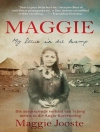Old Friends at Cambridge and Elsewhere, authored by John Willis Clark, is a rich tapestry of reflective essays that delve into the intricate social and intellectual lives of Cambridge University during the late 19th century. The text showcases Clark’s keen observational skills and literary finesse, weaving personal anecdotes with historical context to illuminate the dynamics among the University’s esteemed scholars and notable figures. His prose embodies a blend of nostalgia and respect, capturing the essence of his friendships and the larger academic community while offering a unique lens on the educational ethos of the time. John Willis Clark, a distinguished antiquary and scholar, held various academic roles and nurtured profound connections within Cambridge’s intellectual circles. His experience as a fellow of Trinity College and a dedicated archivist allowed him to foster relationships with notable contemporaries, significantly shaping his perspectives on education, tradition, and scholarship. This background not only informed his writings, but also established him as a pivotal figure in preserving Cambridge’s legacy through his deep appreciation for its heritage. For readers seeking insight into the vibrant milieu of late Victorian academia, Old Friends at Cambridge and Elsewhere offers a compelling exploration of personal relationships amidst a backdrop of scholarly pursuits. Clark’s reflections resonate with those interested in literary history and educational development, making this work a vital addition to the canon of Cambridge literature and a delightful read for both scholars and enthusiasts alike.
About the author
John Willis Clark (1833–1910), often known as J.W. Clark, was a distinguished British academic and antiquarian. He served as the Registry of the University of Cambridge and possessed an expansive knowledge of the university’s history and traditions. His commitment to the preservation of historical resources played a pivotal role in establishing the academic and cultural heritage of Cambridge. Clark’s enduring love for Cambridge is well-reflected in his literary contribution ‘Old Friends at Cambridge and Elsewhere’, where he weaves a rich tapestry of the lives of academics and the intellectual fervor that characterized the university. His writing style merges a scholarly rigor with a warm, personal tone, inviting readers to share in his nostalgia and reverence for his alma mater and its affiliates. Clark’s oeuvre is not limited to this singular work; he penned several other important historical and architectural studies, contributing significantly to the Victorian understanding of medieval institutions. Through his writings, Clark has solidified his position as an authoritative figure in the academic literature of his time, providing a lens into the hallowed halls of learning at Cambridge and the storied corridors walked by many ‘old friends’ to whom both he and the university’s historical narrative are indelibly tied.












